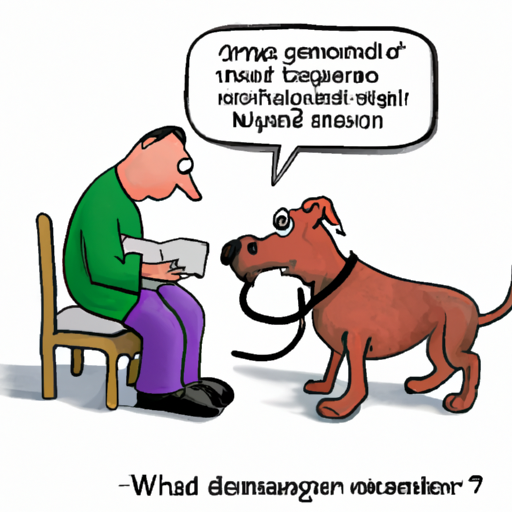As a caregiver for your beloved canine companion, it’s natural to be concerned when you notice any changes in their behavior or physical condition. One of the most alarming can be the discovery of a hard stomach. Understanding the potential causes, symptoms, and treatments can help you navigate this challenge with confidence and compassion.
1. Common Causes of a Hard Stomach in Dogs
There are several reasons why a dog’s stomach may feel hard. Here are a few of the most common:
- Overeating or Gas: Dogs, just like humans, can experience bloating from overeating or swallowing air.
- Gastric Dilatation-Volvulus (GDV): Also known as “bloat,” this serious condition can cause a dog’s stomach to fill with gas and possibly twist on itself.
- Constipation: If your dog hasn’t had a bowel movement in a while, their stomach may feel hard due to backed up feces.
- Tumors or Masses: Any growth in the abdominal region can make a dog’s stomach feel hard.
2. Recognizing the Signs
Knowing what to look for can help you determine the severity of the situation. Be watchful for the following signs:
- Visible Distension: The stomach may appear visibly swollen or distended.
- Pain or Discomfort: Your dog may whimper, whine, or show other signs of discomfort.
- Changes in Behavior: Look for changes in appetite, lethargy, or a generally “off” demeanor.
- Physical Symptoms: Vomiting, diarrhea, or difficulty breathing can also accompany a hard stomach.
3. What to Do If Your Dog’s Stomach Is Hard
If you’ve noticed your dog’s stomach is hard, it’s important to act quickly. Here’s what you can do:
- Remain calm
- Carefully monitor your dog’s symptoms
- Contact your vet immediately for advice
If the stomach hardness is accompanied by severe symptoms like vomiting, excessive drooling, or pale gums, seek emergency veterinary care immediately as these could be signs of a life-threatening condition like GDV.
4. Prevention and Care
While you can’t prevent all causes of a hard stomach, there are some steps you can take to reduce the risk:
- Feed your dog smaller, more frequent meals
- Avoid vigorous exercise right after meals
- Regular vet check-ups to catch potential issues early
5. Frequently Asked Questions
Q: Can a hard stomach be a sign of pregnancy in dogs?
A: Yes, a distended abdomen can be a sign of pregnancy, but it can also indicate other serious health issues. If you think your dog may be pregnant, it’s important to get a confirmation from your vet.
Q: How quickly should I take my dog to the vet if their stomach is hard?
A: If your dog’s stomach is hard and they’re showing other signs of distress, you should contact your vet immediately.
Q: Can certain breeds be more prone to hard stomachs?
A: Yes, deep-chested breeds like Great Danes and German Shepherds are more prone to conditions like GDV.
While a hard stomach in dogs can be concerning, understanding the potential causes and knowing what steps to take can help you navigate this situation as a confident canine caregiver. Remember, when in doubt, always consult with your vet to ensure your dog gets the care they need.



